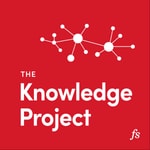Scaling Laws – Details, episodes & analysis
Podcast details
Technical and general information from the podcast's RSS feed.

Scaling Laws
Lawfare & University of Texas Law School
Frequency: 1 episode/8d. Total Eps: 161

Hosted on Acast. See acast.com/privacy for more information.
Recent rankings
Latest chart positions across Apple Podcasts and Spotify rankings.
Apple Podcasts
🇨🇦 Canada - government
02/08/2025#40🇬🇧 Great Britain - government
02/08/2025#43🇺🇸 USA - government
02/08/2025#33🇺🇸 USA - government
01/08/2025#43🇺🇸 USA - government
31/07/2025#47🇺🇸 USA - government
30/07/2025#35🇬🇧 Great Britain - government
29/07/2025#97🇺🇸 USA - government
29/07/2025#30🇬🇧 Great Britain - government
28/07/2025#82🇺🇸 USA - government
28/07/2025#32
Spotify
No recent rankings available
Shared links between episodes and podcasts
Links found in episode descriptions and other podcasts that share them.
See allRSS feed quality and score
Technical evaluation of the podcast's RSS feed quality and structure.
See allScore global : 69%
Publication history
Monthly episode publishing history over the past years.
Matt Perault, Ramya Krishnan, and Alan Rozenshtein Talk About the TikTok Divestment and Ban Bill
vendredi 22 mars 2024 • Duration 50:32
Last week the House of Representatives overwhelmingly passed a bill that would require ByteDance, the Chinese company that owns the popular social media app TikTok, to divest its ownership in the platform or face TikTok being banned in the United States. Although prospects for the bill in the Senate remain uncertain, President Biden has said he will sign the bill if it comes to his desk, and this is the most serious attempt yet to ban the controversial social media app.
Today's podcast is the latest in a series of conversations we've had about TikTok. Matt Perault, the Director of the Center on Technology Policy at the University of North Carolina at Chapel Hill, led a conversation with Alan Rozenshtein, Associate Professor of Law at the University of Minnesota and Senior Editor at Lawfare, and Ramya Krishnan, a Senior Staff Attorney at the Knight First Amendment Institute at Columbia University. They talked about the First Amendment implications of a TikTok ban, whether it's a good idea as a policy matter, and how we should think about foreign ownership of platforms more generally.
Disclaimer: Matt's center receives funding from foundations and tech companies, including funding from TikTok.
Hosted on Acast. See acast.com/privacy for more information.
Jawboning at the Supreme Court
jeudi 21 mars 2024 • Duration 51:38
Today, we’re bringing you an episode of Arbiters of Truth, our series on the information ecosystem.
On March 18, the Supreme Court heard oral arguments in Murthy v. Missouri, concerning the potential First Amendment implications of government outreach to social media platforms—what’s sometimes known as jawboning. The case arrived at the Supreme Court with a somewhat shaky evidentiary record, but the legal questions raised by government requests or demands to remove online content are real.
To make sense of it all, Lawfare Senior Editor Quinta Jurecic and Matt Perault, the Director of the Center on Technology Policy at UNC-Chapel Hill, called up Alex Abdo, the Litigation Director of the Knight First Amendment Institute at Columbia University. While the law is unsettled, the Supreme Court seemed skeptical of the plaintiffs’ claims of government censorship. But what is the best way to determine what contacts and government requests are and aren't permissible?
If you’re interested in more, you can read the Knight Institute’s amicus brief in Murthy here and Knight’s series on jawboning—including Perault’s reflections—here.
Hosted on Acast. See acast.com/privacy for more information.
An Interview with Meta’s Chief Privacy Officers
vendredi 28 avril 2023 • Duration 45:53
In 2018, news broke that Facebook had allowed third-party developers—including the controversial data analytics firm Cambridge Analytica—to obtain large quantities of user data in ways that users probably didn’t anticipate. The fallout led to a controversy over whether Cambridge Analytica had in some way swung the 2016 election for Trump (spoiler: it almost certainly didn’t), but it also generated a $5 billion fine imposed on Facebook by the FTC for violating users’ privacy. Along with that record-breaking fine, the FTC also imposed a number of requirements on Facebook to improve its approach to privacy.
It’s been four years since that settlement, and Facebook is now Meta. So how much has really changed within the company? For this episode of Arbiters of Truth, our series on the online information ecosystem, Lawfare Senior Editors Alan Rozenshtein and Quinta Jurecic interviewed Meta’s co-chief privacy officers, Erin Egan and Michel Protti, about the company’s approach to privacy and its response to the FTC’s settlement order.
At one point in the conversation, Quinta mentions a class action settlement over the Cambridge Analytica scandal. You can read more about the settlement here. Information about Facebook’s legal arguments regarding user privacy interests is available here and here, and you can find more details in the judge’s ruling denying Facebook’s motion to dismiss.
Note: Meta provides support for Lawfare’s Digital Social Contract paper series. This podcast episode is not part of that series, and Meta does not have any editorial role in Lawfare.
Hosted on Acast. See acast.com/privacy for more information.
Joan Donovan on Disinformation and Social Movements
jeudi 3 février 2022 • Duration 50:10
Hosted on Acast. See acast.com/privacy for more information.
Information Disorder During and After the Trump Presidency
jeudi 3 février 2022 • Duration 47:39
During his inaugural address yesterday, President Biden spoke about the subject of this podcast: disinformation. “There is truth and there are lies,” Biden said, “lies told for power and for profit.” And he asked Americans to unify rather than “turn inward” against those “who don't get their news from the same sources you do.”
But in an era of QAnon and pandemic disinformation, how will that unification be possible? The day before the inauguration, Evelyn Douek and Quinta Jurecic spoke with Kate Starbird, an associate professor of Human Centered Design & Engineering at the University of Washington, for this first episode of Lawfare's Arbiters of Truth miniseries under the Biden administration. Kate last came on the podcast in March 2020 to discuss disinformation and misinformation around the coronavirus, and she has had a long year since then researching online ecosystems around the pandemic and supposed voter fraud. And the Capitol riot on January 6 threw all this into sharp relief, as the things that Kate studies every day boiled over into mainstream consciousness with a vengeance. Evelyn and Quinta spoke with Kate about what led up to the riot, what the disinformation landscape looks like now and what kind of work will be required to move forward.
Hosted on Acast. See acast.com/privacy for more information.
Jonathan Zittrain on the Great Deplatforming
jeudi 3 février 2022 • Duration 01:00:07
Yesterday, January 13, the House of Representatives impeached President Trump a second time for encouraging the violent riot in the Capitol Building on January 6. And yet, the impeachment is probably less of a crushing blow to the president than something else that’s happened in recent days: the loss of his Twitter account.
After a few very eventful weeks, Lawfare's Arbiters of Truth series on disinformation is back. Evelyn Douek and Quinta Jurecic spoke with Jonathan Zittrain, the George Bemis Professor of International Law at Harvard Law School, about the decision by Twitter, Facebook and a whole host of other platforms to ban the president in the wake of the Capitol riot. Jonathan, Evelyn and Quinta take a step back and situate what’s happening within the broader story of internet governance. They talked about how to understand the bans in the context of the internet’s now not-so-brief history, how platforms make these decisions and, of course, Section 230 of the Communications Decency Act.
Listeners might also be interested in Zittrain's February 2020 Tanner Lecture, "Between Suffocation and Abdication: Three Eras of Governing Digital Platforms," which touches on some of the same ideas discussed in the podcast.
Hosted on Acast. See acast.com/privacy for more information.
No One Expects the Spanish Disinformation
jeudi 3 février 2022 • Duration 50:20
Hosted on Acast. See acast.com/privacy for more information.
The Vaccine Misinformation Cometh
jeudi 3 février 2022 • Duration 51:19
Hosted on Acast. See acast.com/privacy for more information.
Can Democracies Play Offense on Disinformation?
jeudi 3 février 2022 • Duration 56:19
On this episode of Lawfare's Arbiters of Truth series on platforms and disinformation, Quinta Jurecic spoke with Alina Polyakova and Ambassador Daniel Fried, the former U.S. ambassador to Poland and the Weiser Family Distinguished Fellow at the Atlantic Council. The two have a new paper out on “Democratic Offense Against Disinformation,” published by the Atlantic Council and the Center for European Policy Analysis. They have written previously on how democracies can defend themselves against disinformation and misinformation from abroad, but this time, they turned their attention to what it would mean for democracies to take the initiative against foreign purveyors of disinformation, rather than just playing defense.
So how effective are democracies at countering disinformation? What tools are available if they want to play offense? And is it even possible to do so without borrowing tactics from the same authoritarian regimes that democracies seek to counter?
Hosted on Acast. See acast.com/privacy for more information.
Collaborating to Counter Violent Extremism Online
jeudi 3 février 2022 • Duration 54:05
On this episode of Lawfare's Arbiters of Truth series on platforms and disinformation, Evelyn Douek and Quinta Jurecic spoke with Nick Rasmussen, the Executive Director of the Global Internet Forum to Counter Terrorism (also known as GIFCT). The GIFCT is an organization working to facilitate cross-industry efforts to counter the spread of terrorist and violent extremist content online. It was founded in 2017 by four platforms, but is now transitioning to a new life as an independent organization, which Nick is heading up.
Online violent extremism is one of the most difficult problems of the internet age, and collaboration between companies and governments may be the only way to effectively tackle it. But how can the GIFCT balance this with the need to respect legitimate free speech concerns? How is Nick thinking about the transparency and accountability problems that such collaboration might exacerbate? And why might the GIFCT be one of the most important institutions for the future of online free speech?
Hosted on Acast. See acast.com/privacy for more information.









